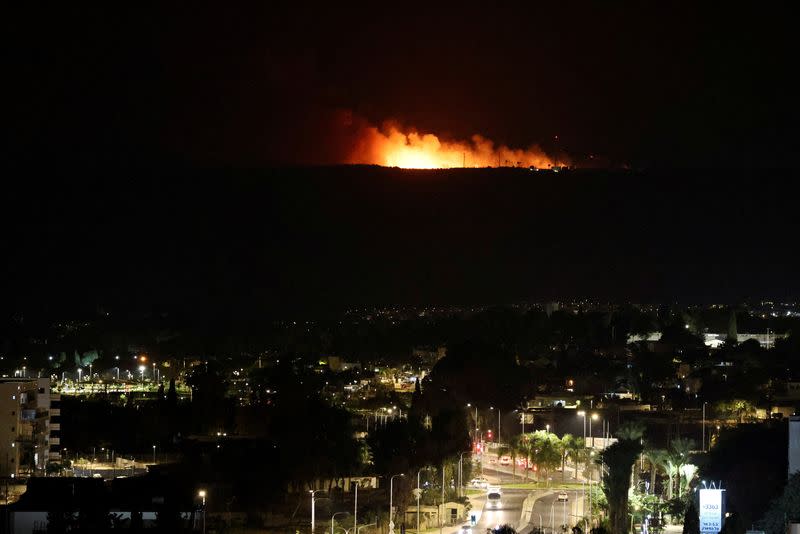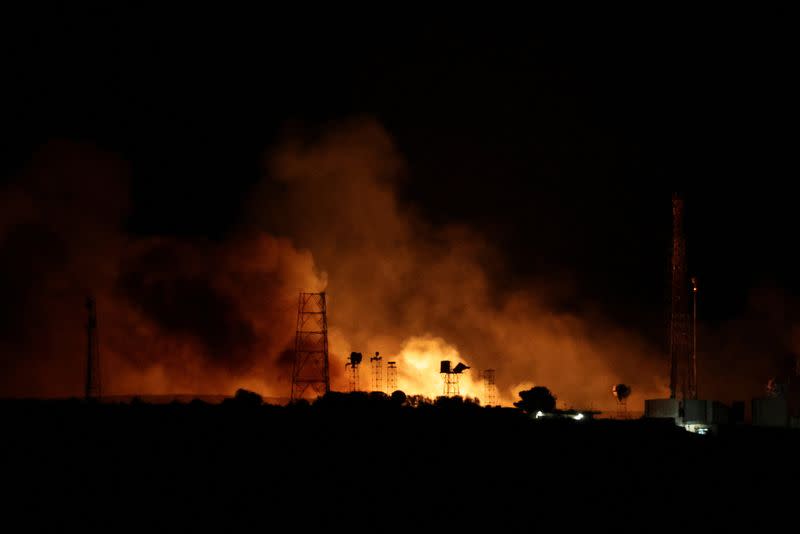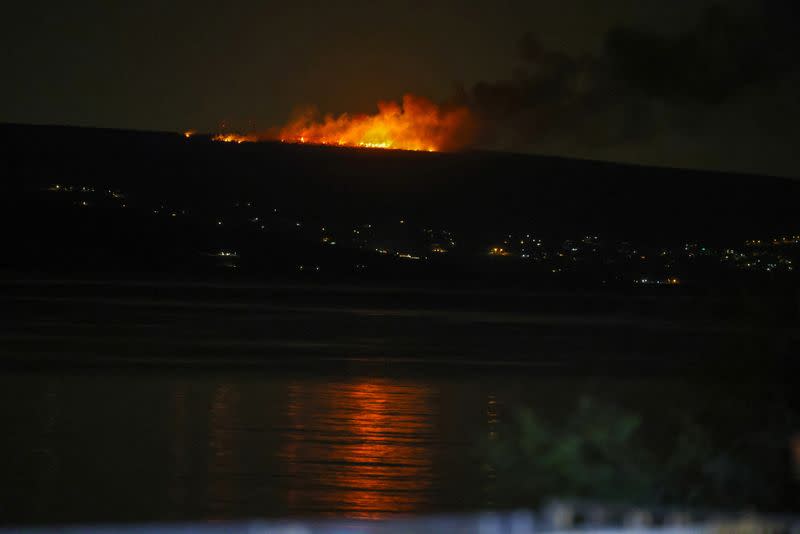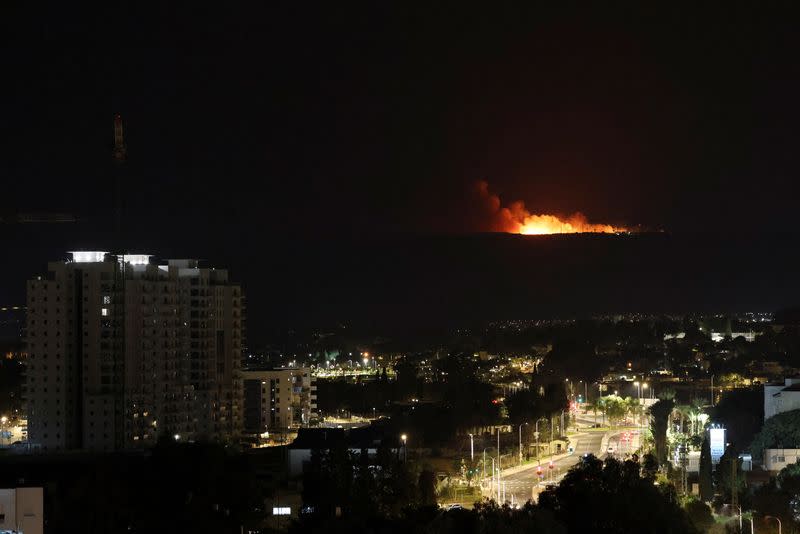Wildfires erupt in southern Lebanon, civil defence blames Israeli shells
BEIRUT (Reuters) - Firefighters in Lebanon were battling wildfires late on Tuesday that Lebanese civil defence said had been sparked by Israeli shelling, with the flames visible for miles as darkness fell.
The fires started around 1700 GMT and were caused by Israeli shells containing white phosphorous being launched across the border, Abdalla Mousawae, head of the Tyre Regional Center of Lebanese civil defence, told Reuters.
The Israeli military did not immediately respond to a request for comment.
Border clashes between Israel and Iran-backed Hezbollah have escalated in recent weeks since Israel went to war with Hezbollah's Palestinian ally Hamas.
The flames near the Lebanese border village of Labbouneh could be seen from the coastal city of Tyre, some 25 kilometres (15 miles) north, a Reuters witness said. Reuters could not independently verify the cause of the fires.
"We're facing phosphorous shelling, these react with oxygen, they fall causing lots of shrapnel," Mousawae said.
"Around 90% of the shells are phosphorous bombs," Mousawae said, citing doctors and the army, and adding that fires caused by such shells had a distinct colour. There were no immediate reports of any injuries from Tuesday's fires.
Lebanon's foreign ministry has instructed the Lebanese mission to the United Nations to submit a new complaint to the UN Security Council "to condemn Israel's use of white phosphorus in its repeated attacks against Lebanon, and its deliberate burning of Lebanese woods and forests", Lebanon's National News Agency reported on Tuesday, citing Foreign Minister Abdallah Bou Habib.
Separately on Tuesday, human rights group Amnesty International accused the Israeli army of firing artillery shells containing white phosphorous in military operations along Lebanon's southern border between Oct. 10 and Oct. 16.
"It is beyond horrific that the Israeli army has indiscriminately used white phosphorous in violation of international humanitarian law," Aya Majzoub, Deputy Regional Director for the Middle East and North Africa at Amnesty International, said in a statement.
Earlier this month, the Israeli military said an accusation by Human Rights Watch that it had used white phosphorus munitions in Gaza was "unequivocally false."
White phosphorus munitions can legally be used on battlefields to make smoke screens, generate illumination, mark targets or burn bunkers and buildings.
Because it has legal uses, white phosphorus is not banned as a chemical weapon under international conventions, but it can cause serious burns and start fires.
White phosphorus is considered an incendiary weapon under Protocol III of the Convention on the Prohibition of Use of Certain Conventional Weapons. The protocol prohibits using incendiary weapons against military targets located among civilians, although Israel has not signed it and is not bound by it.
(Reporting by Riham Alkousaa and Henriette Chacar in Jerusalem, Editing by Rosalba O'Brien)





